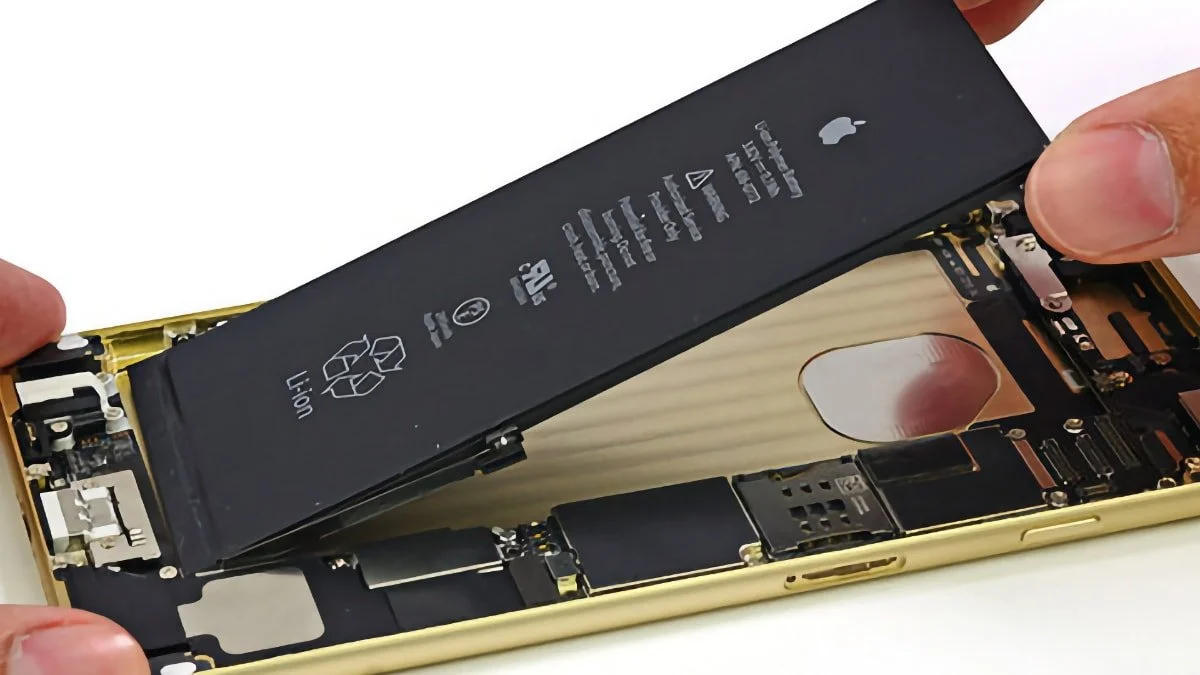The European Union is moving closer to enacting a law that will require smartphones like the iPhone to have easier battery repairs.
Weirdly torn on this: I live a few hours from the nearest Apple store, so it’d be nice if I could replace my phone battery without going through all this, but I also like the fact my phone is a decently robust and waterproof little brick with few moving parts or breakable pieces. It’s practically a tank compared to the last battery-replaceable smartphone I had.
If I had to replace my battery as frequently as I did with early smartphones then I’d willingly trade some of the durability for a user-replaceable battery, but I’ve had an iPhone 12 mini since its launch – about two and a half years – and its battery still gets me through the day just fine. iOS Battery Health says its maximum capacity is 87%. Maybe next year I’ll need a battery replacement, and that’ll do me fine for another three years. I’ll be extremely pleased, but also quite surprised, if the phone lasts long enough to need a second battery replacement after that. Is that a repair we should really be optimizing for?
@tojikomori As someone who repairs these things I can assure you that it’s possible to have replaceable batteries AND water-proofness. Don’t believe the BS that the manufacturers try to sell you in order to ensure you’re beholden to them for all things.
The question isn’t “is it possible?”. It’s “what’s the trade off?”.
There isn’t a trade off that I wouldn’t consider a massive downgrade to my device.
The tradeoff is that Apple spends R&D resources on making it possible.
It’s literally impossible for it to not take a chunk of the volume budget. There is nothing else that could take that space that could possibly have less value to me.
The EU is trying to fuck up my phone.
Yea there were waterproof phones before most phones pivoted to non-removable right?
I guess another question is whether manufacturers can reach the same current rating on removable battery phones?
Yea there were waterproof phones before most phones pivoted to non-removable right?
Not really.
@RyanHakurei @tojikomori @holo_nexus
The Samsung Galaxy S5 was IP67 rated and had a removable battery, MicroSD card slot, and headphone jack.
A better waterproofing rating could be obtained with a screwed-on back panel and gasket. But phone manufacturers are lazy and would rather you buy a new phone when the battery wears out.
A screw-on panel sounds like a good idea to me – a decent balance between replaceability and durability, without overly optimizing for a repair that only happens once or twice in a handset’s lifetime.
The S5 looked a lot like my first smartphone, and it goes to the other extreme: a flimsy plastic shell over some sturdier plastic that frames the battery and separates its contacts from the phone’s internals. My newer, non-user-replaceable-battery handsets – both Apple and Android – have held together a lot better using fewer materials more judiciously.
A sweet spot between these extremes (“you need 80 lbs of specialized equipment to replace the battery safely” vs. “let’s pretend people need to swap out phone batteries like AAs”) could be good for me, but I want to know about the trade-offs. Too often legislators and right-to-repair advocates talk as though there are none. Even with a screw-on panel, I’m sure there are trade-offs.
Why should I believe the word of some random person on the internet? Why should the EU? They are going to take testimony from actual engineers who work on this stuff from multiple manufacturers who are going to say it’s not possible and guess what? The EU is going to believe them.
I saw this somewhere else on Lemmy yesterday, but I’m a bit concerned waterproofness if this goes forward.
If they mandate removable back covers for easier access to the battery, this could be a challenge for waterproofing capabilities, MagSafe, and wireless charging (from what I can remember right now).
Hopefully they’ll make it so that we’re able to keep all these features and have easier battery swapping.For me, it’s not about being able to replace the battery more quickly, but instead being able to take out a battery that’s decided it’s not happy being size zero and would rather embrace its inner plus size lifestyle. Strangely enough, an enclosed device isn’t happy when a sealed-in battery decides it wants to take up 3 times the space that’s been allocated in the device for it.
Oh maybe that’s why apple made the iPhone 14 (but not the 14 pro) able to be opened from the front or the back. Better to have a working solution before a law is passed than have to scramble afterwards.
They could just mandate some less powerful glue behind the batteries and less annoying circuitry behind the screen.
I’ve tried fixing an iphone and I destroyed it even after watching tons of videos and having all the tools.
I snagged one of the micro ribbon cabled at the bottom of the screen, and then after that I couldn’t get the old battery out.
This is one “consumer friendly enhancement” that I hope is exclusive to Europe if it passes.
Why would you want it to be exclusive to Europe instead of having it around the world?
Clunkier devices, complications for wireless charging, cheap plastic backs again. Just seems like a step backwards.










